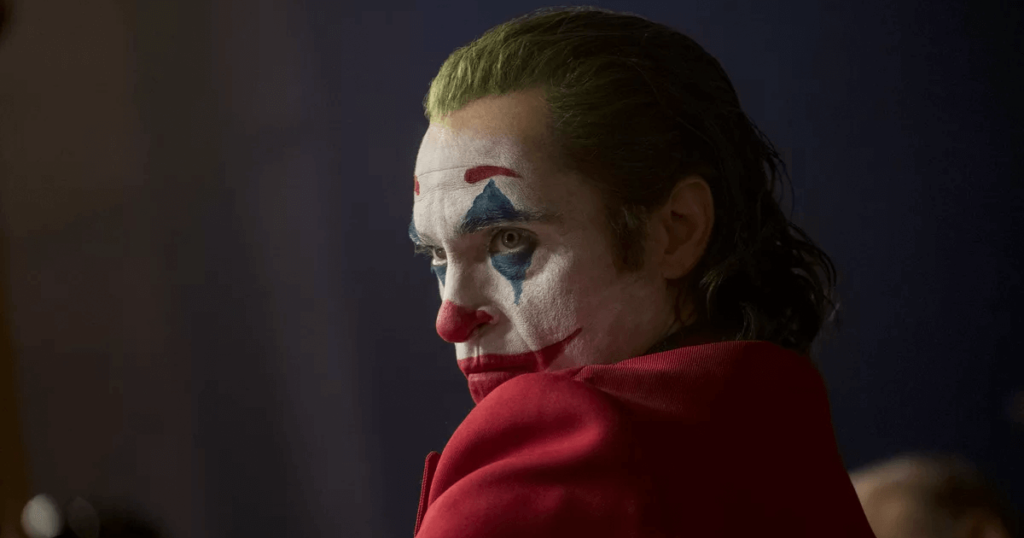
Over the weekend, my wife and I saw Joker in Manhattan, in a theater near Union Square, a very New York setting for a film that felt like a demented fever dream of that same place. What we watched was a gorgeously shot movie—dozens of scenes could be frozen and blown up as photographs—about a well-known comic-book villain whose psychology was powerfully and credibly imagined and inhabited by one of the finest actors working today. This glimpse at violent insanity was evocative if terrifying (and reassuringly fictitious). The movie had achieved what all good movies are supposed to do: it left us feeling that we had been through an extraordinary collective experience, left us discussing and questioning what we had felt, and left us with images that neither of us will soon be able to forget. There are moments when Joaquin Phoenix straddles the bounds of monstrosity and sublimity—staring out the window of a dilapidated bus; painting his face with makeup—that are little visual miracles.
Which is why we were so unsure what to make of the near-unanimous critical disdain for the film—on what seemed like ideological and not artistic grounds—in the mainstream press. No review better encapsulates the disconnect between what we had seen and what we were warned not to like than Richard Brody’s pan in The New Yorker. Even though black and other minority actors routinely bemoan the professional reality that their characters are typically defined by their race, Brody makes the stifling argument with regard to Joker—a comic-book adaptation, let’s not forget—that the black characters must be raced (e.g., Zazie Beetz’s character cannot simply be Joker’s neighbor; she must be his black neighbor). He concludes by arguing, in a rhetorical leap that is astounding but indicative of where the critical discourse has been heading for a long time, that though the movie’s parodies of films like Taxi Driver and The King of Comedy are apparent,
the crucial parody, the crucial mockery, the work of which ‘Joker’ comes off as a callously commercial imitation, is ‘Black Panther’— a comic-book-based movie that infuses its framework with rigorously conceived and boldly assertive political visions to go with its elaborate world-building.
This point is simply asserted without being persuasively earned. It is not at all self-evident why Joker has to have a clearly delineated politics, racial or otherwise. Nor is it apparent why this film would have to conceive of itself as being in conversation with Black Panther. A work of art does not have to be overtly political so as not to be shallow. But we risk destroying the subtle and disturbing pleasures of ambiguity—moral, aesthetic, mimetic and otherwise—by insisting that it does.

